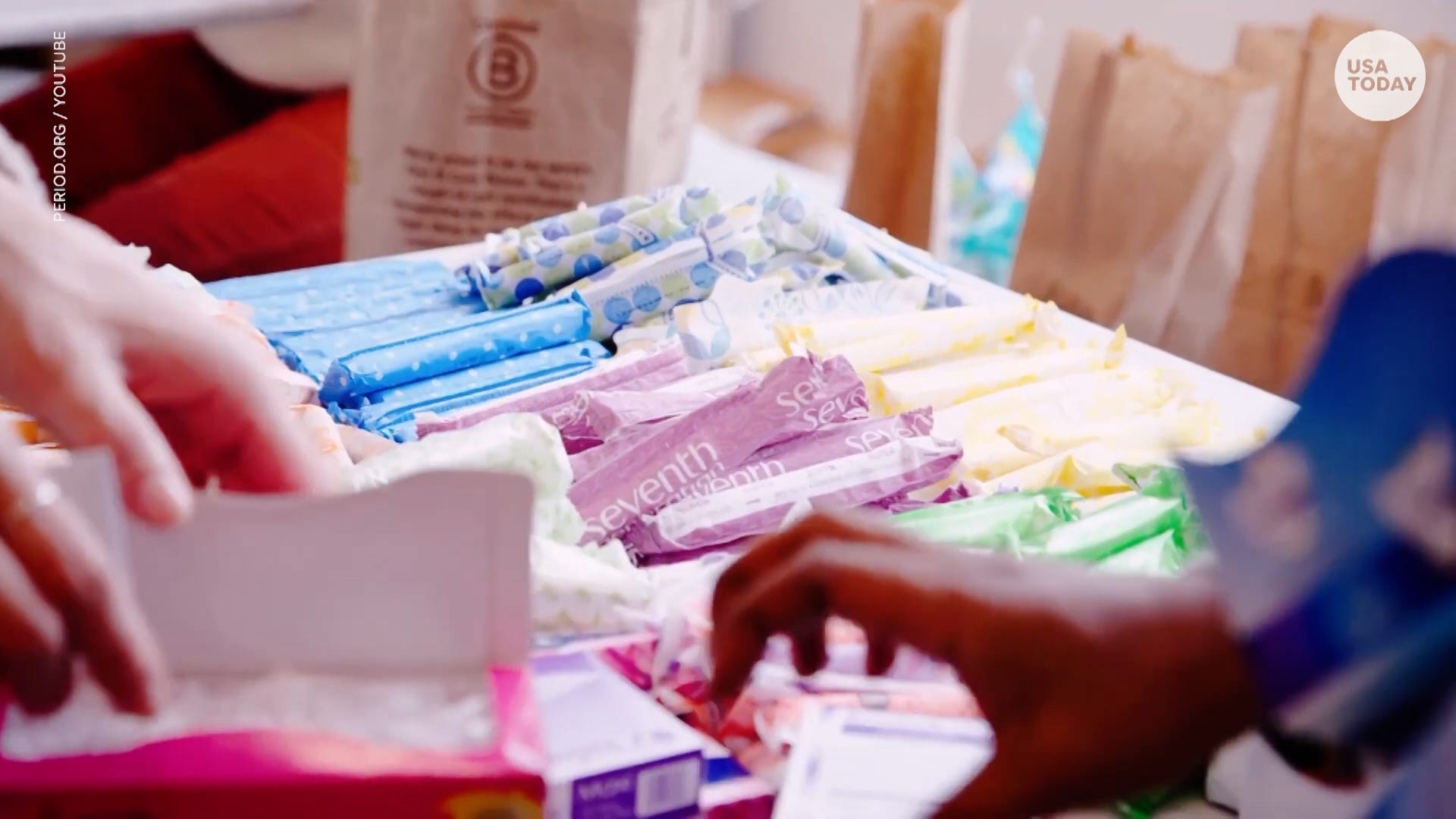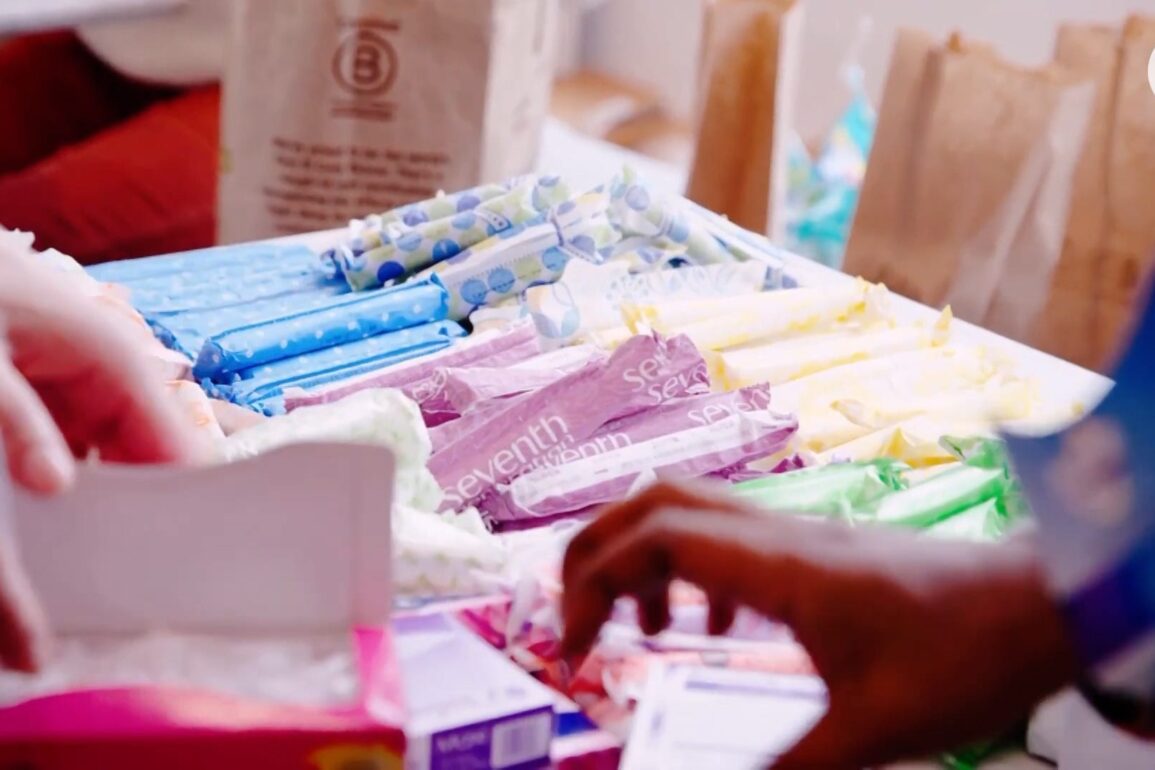As of April 2024, only 25 states in the U.S. mandate free access to menstrual products in correctional facilities. Wisconsin is not one of them.

Period products like tampons and pads are not a luxury, advocacy groups say
One in four people in the U.S. who need menstrual products today struggle to afford them. And more than 20 states still tax period products.
Ariana Triggs and Callie Carmichael, USA TODAY
- Wisconsin prisons do not provide free menstrual products to incarcerated women, leading to undignified and potentially dangerous situations.
- Assembly Bill 770, which would have mandated free menstrual products in Wisconsin prisons, failed in April 2024.
- The lack of access to these essential products can lead to health issues, exacerbate mental health problems, and hinder reintegration efforts.
- Providing free menstrual products is a cost-effective measure that protects inmates’ health and dignity.
Chandra Bozelko will never forget the moment a used pad slipped out of a fellow inmate’s underwear. The pad had been worn far too long, an unavoidable consequence of poor-quality materials and limited access to replacements. While this experience occurred in a New York correctional facility, the issue is far from isolated.
As of April 2024, only 25 states in the U.S. mandate free access to menstrual products in correctional facilities. Wisconsin is not one of them
I received my undergraduate degree from Marquette University. There, I studied Social Welfare and Justice and International Affairs in an effort to understand and advocate for women’s rights around the world. But it didn’t take long for me to realize that some of the glaring inequalities I saw in my studies exist right here at home, in the state I have grown to love.
Incarcerated women in Wisconsin who are forced to bleed through their clothing must confront a reality that reflects a profound disregard for their basic dignity.
Measure to provide free feminine hygiene products to inmates failed
A group of legislators introduced Assembly Bill 770 in December of 2023 to ensure “that each state correctional institution provides…feminine hygiene products free of charge to any inmate with an active menstrual cycle.” It failed on April 15th, 2024. This was a costly mistake.
This lack of hygiene products forces incarcerated women into undignified positions, some going hungry as a price to pay for hygiene menstrual management. A study in the Journal of Women’s Health found that over one quarter of menstruators in correctional facilities had to barter for menstrual hygiene products, forced to trade food and other necessities for tampons and pads.
Bozelko also recounts correctional facilities providing five pads per cell each week, which houses multiple women, allowing for virtually one change a day for a monthly cycle. This level of deprivation isn’t just humiliating: it’s dangerous. Product overuse has the potential to cause serious infections, even hysterectomies.
The Wisconsin Department of Corrections explains that menstrual products in some prison canteens can be purchased at a “small cost.” Considering that as of 2022, inmates in Wisconsin state prisons are paid $0.12 to $0.42 per hour for most jobs, this “small cost” can amount to a potentially huge, undue economic burden.
Lack of basic hygiene products strips female inmates of dignity
The average woman will spend the equivalent of more than eight years of her life managing her period — a natural and recurring part of her biology. Yet for many incarcerated women, this basic reality becomes a source of shame and suffering. Under these conditions, periods effectively act as a punishment. But regardless of the circumstances that led someone to be incarcerated, no one should be stripped of their dignity due to the lack of basic hygiene products.
A growing body of research shows that period poverty — or a lack of access to menstrual products, hygiene facilities, and education about menstruation — has serious consequences for mental health. Period poverty exacerbates mental health issues and is associated with higher odds of screening positive for depression, anxiety, and suicidal ideation.
Poor mental health among inmates has the potential to have drastic impacts on reintegration efforts. The DOC emphasizes reintegration as a top priority in its purpose statement, aiming to “provide the resources necessary to make positive life changes.”
Upholding this mission means that inmates’ basic needs must be fulfilled. Reintegration is impossible when individuals are forced into survival mode, struggling each day to maintain their dignity. The lack of access to affordable, sanitary menstrual products undermines the very goal of rehabilitation by placing menstruators into undignified situations.
Opinion: Bipartisan bill helps fix gap in obstetrics care for women in rural areas
I know many of us are worried about cutting unnecessary expenses. But it makes far more sense to incur a small cost in providing menstrual products that ensure dignity and security, rather than spend thousands treating preventable conditions like toxic shock syndrome caused by product overuse. Ensuring access to menstrual products is not only a basic human right and a matter of dignity — it’s also a smart investment that will pay off in the future by reducing future healthcare costs and promoting healthier communities.
It’s time for the Wisconsin Legislature to revisit and reintroduce new legislation to make women’s hygiene products accessible in all prisons across Wisconsin. Doing so would align with the state’s commitment to rehabilitation while affirming the basic rights and dignity of people in our correctional system.
By supplying menstrual hygiene products in prisons, we take one meaningful step toward a system that values human dignity and allows all incarcerated people to reach their full potential.
Sarah Kuhns is a graduate of Marquette University and currently pursuing a Master of Human Rights degree at the University of Minnesota’s Humphrey School of Public Affairs
This post was originally published on this site be sure to check out more of their content.









